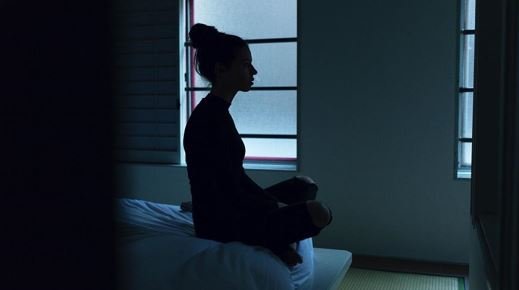Insomnia is a common sleep difficulty, which means sleeping adequately but not feeling refreshed after getting up. This is a common sleep disorder in which one can’t sleep, even getting extremely tired or faces an interrupted sleep schedule.
There are commonly three considerations in insomnia: precipitating, predisposing, and perpetuating factors; According to Dr.Arthur Spielmans model.
How much time to sleep varies for every age, but people usually need 7 to 8 hours for a day. When People use mostly OTC sleeping aids, then insomnia may damage their physical and mental health. It usually happens due to a long drive, traumatic events, stress, jetlag, night shift work, and overage.
In many experiences, we have come across three types of insomnia; long-term insomnia, short-term insomnia and, transient insomnia. Short-term insomnia (acute) stays typically within days or weeks, while on the other side, long-term insomnia (chronic) lasts for a month or more.
We should not use sleeping pills to get rid of this chronic issue, better change our habits, lifestyle, and late-night work because insomnia is a primary problem, and it is related to other medications and conditions. These conditions are the symptoms of mental and physical issues.
However, Insomnia is a risk factor, and if you find out the following factors, you should consult your doctor. Just view product to have a peaceful sleep.
What is insomnia?
Insomnia is a common sleep disorder with sleep maintenance, initiation or consolidation, long drive, night shift work, daytime sleep. Insomnia has three short-term (acute) insomnia, transient insomnia, and long-term (chronic) insomnia.
- Acute Insomnia: The condition in short-term or acute insomnia may become and go for one day or three days.
- Transient Insomnia: The condition in this insomnia stays for less than one week, and it also comes and goes in a week.
- Chronic Insomnia: In this Insomnia patient has a critical condition usually patient occurs the underlaying the risk of insomnia. It stays for one to three months, and insomnia is basically short-term or transient, but sometimes it can be chronic.
Factors of Insomnia:
There are various factors of insomnia that mainly affect women rather than men. Such as
Over Age:
Insomnia appeared in aged people because their sleeping times and patterns are changed. When People get aged, their habits, working hours, and sleep-wake cycle change, and then they face insomnia, which is the main factor of insomnia. It generally comes mainly in the women When they are getting old. But some African American youngers or middle-age people have also been affected by insomnia.
Chronic Diseases:
Many chronic diseases such as Asthma, Arthritis, Head Injuries, Hypertension, Headache, Fibromyalgia, Kidney problems, Alzheimer’s disease, thyroid, back pain, and others are the root cause of insomnia.
Physical Condition:
A large number of physical and mental conditions cause restless sleep and insomnia. Physical Conditions such as Headache, daytime sleep, overloaded work, stress, anxiety, and depression, and among others physical conditions can generate Insomnia.
Poor Sleep Environment:
Insomnia can be affected by a poor sleep environment, such as light effects, because lights strongly influence the human brain, and our mind has light-sensitive cells. Insomnia typically happens when people change their sleep-wake cycle and spend more time in bed.
Working in Night Shift:
People usually change their working hours from daytime to nighttime and then end up facing insomnia. Because You can’t take proper sleep in the daylight, the asleep environment is not available during the day. That is why you can complete your good sleep hours and stay restless during the day-long activities.
Long Travel:
Insomnia happens when you are traveling for a long time, even if you are not driving a car. People usually choose nighttime travel because they are busy with their work during the day, but it causes insomnia and disturbed sleep patterns. We need to take a rest at night and avoid traveling in the nighttime.
Lifestyle Behavior:
Insomnia affects when people typically change their lifestyle. Sometimes, people live in a luxurious environment. Suddenly, they change their lifestyle due to personal reasons; it also affects humans’ mental and physical conditions and is the factor of insomnia.
Precautions and Treatment:
Here are many precautions and treatments that you can opt for to reduce or prevent insomnia. You need a sound and peaceful sleep to overcome Insomnia. Here are the following tips to resolve Insomnia:
- You should have a proper bedtime sleep, such as taking a shower, listening to music or audiobooks, and reading books.
- You need to make a timetable for sleeping and waking time.
- You must check your medicine if it is the reason for insomnia.
- You should avoid alcohol, drugs, nicotine, and caffeine, especially before going to bed.
- You need to make your room and bed comfortable to improve sleep quality.
- You should avoid overeating and large meals before going to sleep.
Sleep restriction, paradoxical intension, relaxation techniques, stimulus control, behavioral therapy, and medications are insomnia treatments either is short-term insomnia, transient insomnia, or long-term insomnia.
Short-term Insomnia (acute) doesn’t need treatment, but if you feel it hard and disturbed during your work, you should consult your doctor. It might be pretty possible your doctor recommends you sleeping pills for a while. These medicines may help you reduce your acute insomnia quickly, but you must avoid drugs if you face short-term insomnia.
One most important thing is to avoid using OTC (over-the-counter) sleeping aids because these medications have side effects.
For long-term insomnia (chronic), people need treatments for health problems and conditions. In this way, your doctor may suggest behavioral therapy, helping you reduce chronic insomnia.
Conclusion:
To sum up, we can say that Insomnia, while it is acute insomnia, transient insomnia, and chronic insomnia, should be handled carefully. Avoid taking any medicine to reduce insomnia if not prescribed by your doctor. We need to change our habits and apply behavioral therapy to overcome this sleep disorder.
